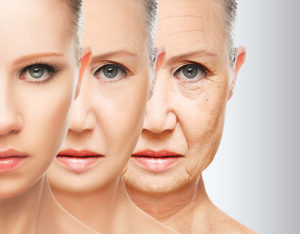
Diagnosed with Cancer? Your two greatest challenges are understanding cancer and understanding possible side effects from chemo and radiation. Knowledge is Power!
Learn about conventional, complementary, and integrative therapies.
Dealing with treatment side effects? Learn about evidence-based therapies to alleviate your symptoms.
Click the orange button to the right to learn more.
- You are here:
- Home »
- Blog »
- side effects ID and prevention »
- Green Tea – Aging
Green Tea – Aging

Among the many supplements and functional foods that are becoming more recognized in the medical community and the western diet, one of them is green tea. Much like fish oil, green tea has been shown to help with the effects of cutaneous aging by protecting against ultraviolet radiation, which is carcinogenic and excleretates cutaneous aging.
This study done by Critical Reviews in Science and Nutrition has an abstract confirming its benefits and explaining what UV rays do in more medical jargon.
“Green tea is an abundant source of plant polyphenols exhibiting numerous effects that are potentially beneficial for human health. Accumulating evidence suggests that green tea polyphenols confer protective effects on the skin against ultraviolet (UV) irradiation-induced acceleration of skin aging, involving
- antimelanogenic,
- antiwrinkle,
- antioxidant, and
- anti-inflammatory effects
as well as prevention of immunosuppression. Additionally, immunosuppression caused by UV irradiation plays an important role in photoaging and skin carcinogenesis. In this review, we summarize the current literature regarding the antimelanogenic, antiwrinkle, antioxidant, and immunosuppression preventive mechanisms of green tea polyphenols that have been demonstrated to protect against UV irradiation-stimulated skin photoaging, and gauge the quality of evidence supporting the need for clinical studies using green tea polyphenols as anti-photoaging agents in novel cosmeceuticals.”

beauty concept skin aging. anti-aging procedures, rejuvenation, lifting, tightening of facial skin, restoration of youthful skin anti-wrinkle
To break that down, antimelanogenisis is the prevention of melanin production which protects your skin from the sun. It reduces the wrinkling effects of aging and supports the immune system which is the backbone of carcinogen prevention, though it could be said about a lot of things, a weaker immune system is a greater cancer risk.
UV radiation is harmful like any prolonged exposure to radiation. It damages DNA and can mutate cells which sometimes is the cause of skin cancer. The prolonged exposure introduces free radicals which is what damage DNA, proteins including collagen, and fats in skin cells.
When skin cells are damaged they cannot create healthy new cells, leading to wrinkles, sun spots, and thin, sagging skin. The three different types of skin cancer that are also a risk are squamous cell carcinoma, basal cell carcinoma, and melanoma.
The preventative chemical in green tea is called polyphenols, which produce something that counteracts all these effects. An article by National Grocers explains why these polyphenols work.
“Green tea is an excellent source of polyphenols called catechins. Epigallocatechin-3-gallate (EGCG) is the most abundant and extensively researched catechin in green tea and one that is showing promise in protecting the skin from UV damage, including skin cancer.
Human and animal studies have shown that EGCG has anti-inflammatory, antioxidant, anticarcinogenic, and photoprotective effects when taken orally and applied topically to the skin. One study found that regular intake of EGCG increased the amount of UV exposure it took to burn the skin; in other words, it increased the skin’s resistance to sunburn.
In studies investigating non-melanoma skin cancers, EGCG was found to reduce oxidative stress, cancer cell proliferation, and inflammation. At the same time, EGCG has been found to enhance the immune system, apoptosis (programmed cell death), and DNA repair.
Initially, it was thought that EGCG was only effective for non-melanoma types of skin cancer like basal and squamous cell carcinomas, but emerging research indicates that EGCG has a preventative effect against melanoma too.
Studies show that consistent intake of EGCG, either through consumption of green tea or green tea extract, leads to higher concentrations of EGCG in the cells throughout the body, meaning that the body is able to effectively store it. Researchers have determined the effective cancer-preventative “dose” to be approximately 10 half-cup servings of green tea per day or about 2.5 grams of green tea extract.”
In summary, the production of EGCG from green tea polyphenols both protects and maintains in the body protecting against these effects and was compared to sunscreen use in effectiveness depending on the dose. Green tea is also the food with the highest concentration of these polyphenols.
See also: Functional Foods and Supplements
Alexander Emerson
- Writer
- Cancer Caregiver
Chemotherapy causes premature aging. Living as a long-term cancer survivor with a host of long-term and late stage side effects, I have to work to protect against the aging caused by aggressive chemotherapy and radiation as well as my increased risk of secondary cancer- again caused by my aggressive chemotherapy and radiation in ’94-’96.
- Healing Chemotherapy-Induced Senescence aka Aging
- Myeloma Chemo = Accelerated Aging
- Anti-Aging Therapies- Want to Live Longer?
- Chemo Ages BC patients 10-15 years?!?!
- Protect Aging Skin Reducing Risk of Skin Cancer
I supplement with Green Tea Extract. I do so not just to look younger but to reduce my risk of skin cancer. My autologous stem cell transplant in 1995 increased my risk of SCC, BCC and melanoma.
David Emerson
- Cancer Survivor
- Cancer Coach
- Director PeopleBeatingCancer

